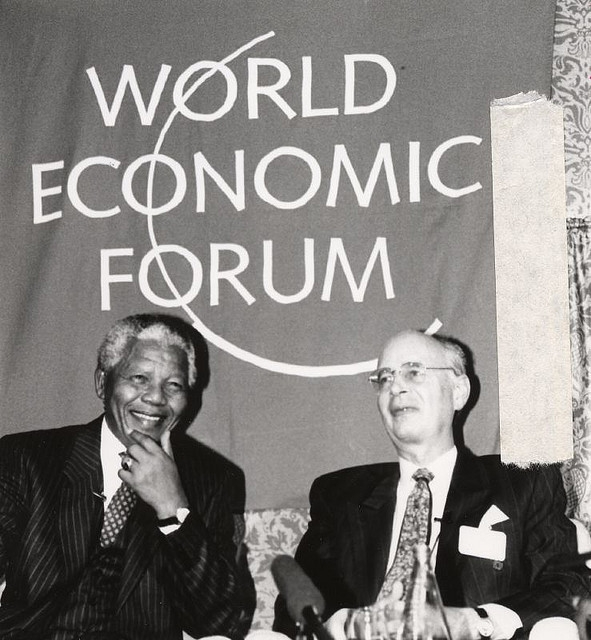All you think you know about King Leopold II and the Belgian Congo is wrong
You were told it was a hellish land of cruel exploitation. That's a lie
In reality, Congo was a colonial jewel, the atrocities didn't occur, and the Belgian years were the only good rule it's had🧵👇
You were told it was a hellish land of cruel exploitation. That's a lie
In reality, Congo was a colonial jewel, the atrocities didn't occur, and the Belgian years were the only good rule it's had🧵👇

First, it's important to note what state of things existed in what became the Belgian Congo before King Leopold II became its ruler
That tale is best told by Henry Stanley in his book, How I Found Livingstone, his tale of searching for Dr. Livingstone in the heart of Darkness
In it, he describes hell on a grand scale. Arab slavers from Zanzibar pillaged the anarchic territory, taking gangs of fettered slaves back with them to be castrated and sold to the Arab slave market
The interior, when not being raided by Arabs, was in a state of horrid chaos. Random violence, cannibals, the ever-present threat of famine, and all the rest we think of when we think of pre-colonial Africa is what life was like in the Congo. Rotting vegetation, insect-infested huts, farms barely maintaining subsistence, and tribes raiding each other and explorers were the basic aspects of life in the pre-Belgian world
In short, life before the Belgians was like life in the Stone Age: nasty, brutish, and short, with the only law being the law of the jungle
Stanley and Livingstone did much to expose this state of things, and it was the greedy, exploitative traders who followed in their wake, before Leopold and the Belgians, that are recorded by Conrad in his The Heart of Darkness
That tale is best told by Henry Stanley in his book, How I Found Livingstone, his tale of searching for Dr. Livingstone in the heart of Darkness
In it, he describes hell on a grand scale. Arab slavers from Zanzibar pillaged the anarchic territory, taking gangs of fettered slaves back with them to be castrated and sold to the Arab slave market
The interior, when not being raided by Arabs, was in a state of horrid chaos. Random violence, cannibals, the ever-present threat of famine, and all the rest we think of when we think of pre-colonial Africa is what life was like in the Congo. Rotting vegetation, insect-infested huts, farms barely maintaining subsistence, and tribes raiding each other and explorers were the basic aspects of life in the pre-Belgian world
In short, life before the Belgians was like life in the Stone Age: nasty, brutish, and short, with the only law being the law of the jungle
Stanley and Livingstone did much to expose this state of things, and it was the greedy, exploitative traders who followed in their wake, before Leopold and the Belgians, that are recorded by Conrad in his The Heart of Darkness

It was about a decade and a half later that, during the Berlin Conference, King Leopold II was granted control of the area now knows as the Democratic Republic of the Congo
He controlled it through the Congo Free State, a private attempt he founded and fully owned, with the goal of colonizing and bring order to the anarchic territory
To do so, he started sending to the state Belgian officers and administrators. They, along with a bevy of monks, nuns, and traders, were the ones who set out to turn the anarchic Congo into a well-administered area that turned from animist paganism to Christianity while becoming prosperous and stable
The military/police arm of that rule was the Force Publique, which was mainly officered by Belgians but otherwise consisted of natives allied with the Congo Free State. They protected the nuns, protected the traders, kept out the Arab slavers from Zanzibar, and generally tried to first impose and then maintain order

He controlled it through the Congo Free State, a private attempt he founded and fully owned, with the goal of colonizing and bring order to the anarchic territory
To do so, he started sending to the state Belgian officers and administrators. They, along with a bevy of monks, nuns, and traders, were the ones who set out to turn the anarchic Congo into a well-administered area that turned from animist paganism to Christianity while becoming prosperous and stable
The military/police arm of that rule was the Force Publique, which was mainly officered by Belgians but otherwise consisted of natives allied with the Congo Free State. They protected the nuns, protected the traders, kept out the Arab slavers from Zanzibar, and generally tried to first impose and then maintain order


Naturally, establishing and providing order in such fashion was far from cheap, and Leopold wanted to make it at least pay for itself
But how do you do so in a land without any real money, with limited development of any sort, in which you ahve to build all the infrastructure you might need, and into which you can only send a few administrators and officers because of the disease-based mortality rate?
Natural resource extraction, the most misunderstood part of Leopold's rule. Particularly, the extraction of rubber.
It is Stanley, the explorer of earlier days who later founded Leopoldville (now Kinshasa) that drew attention to that idea and away from ivory, writing to Leopold: "You can find [rubber] on almost any tree. As we made our way through the forest, it was literally raining rubber juice. Our clothes were full of it. The Congo has so many tributaries that a well-organized company can easily extract a few tons of rubber per year here. You only have to sail up such a river and the branches with rubber hang almost up to your ship."
But how do you do so in a land without any real money, with limited development of any sort, in which you ahve to build all the infrastructure you might need, and into which you can only send a few administrators and officers because of the disease-based mortality rate?
Natural resource extraction, the most misunderstood part of Leopold's rule. Particularly, the extraction of rubber.
It is Stanley, the explorer of earlier days who later founded Leopoldville (now Kinshasa) that drew attention to that idea and away from ivory, writing to Leopold: "You can find [rubber] on almost any tree. As we made our way through the forest, it was literally raining rubber juice. Our clothes were full of it. The Congo has so many tributaries that a well-organized company can easily extract a few tons of rubber per year here. You only have to sail up such a river and the branches with rubber hang almost up to your ship."
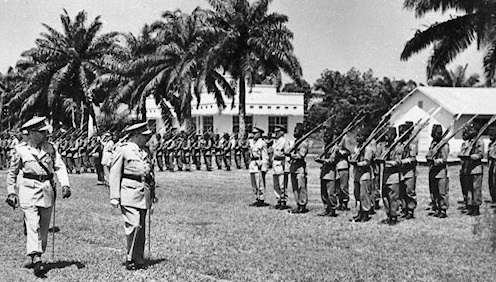
As rubber prices were exploding in the 1890s and it could be extracted with a very mild corvée, and no other taxes would be necessary and the project could easily pay for itself. That, then, is what the Congo Free State did. Bruce Gilley, describing this in The Case for Colonialism, writes:
By 1891, six years into the attempt to build the EIC, the whole project was on the verge of bankruptcy. It would have been easy for Léopold to raise revenues by sanctioning imports of liquor that could be taxed or by levying fees on the number of huts in each village, both of which would have caused harms to the native population.
A truly "greedy" king, as Hochschild repeatedly calls him, had many fiscal options that Léopold did not exercise. Instead, he did what most other colonial governments, and many post-colonial ones in Africa did: he imposed a labor requirement in lieu of taxes. In a small part of the upper Congo river area, he declared an EIC monopoly over "natural products," including rubber and ivory, that could be harvested as part of the labor requirement to pay for the territory's government. From 1896 to 1904, an EIC company and two private companies operated in this area, which covered about 15% of the territory and held about a fifth of the population. The resulting rubber revenues temporarily saved the EIC, but only until rubber prices collapsed in 1906.
By 1891, six years into the attempt to build the EIC, the whole project was on the verge of bankruptcy. It would have been easy for Léopold to raise revenues by sanctioning imports of liquor that could be taxed or by levying fees on the number of huts in each village, both of which would have caused harms to the native population.
A truly "greedy" king, as Hochschild repeatedly calls him, had many fiscal options that Léopold did not exercise. Instead, he did what most other colonial governments, and many post-colonial ones in Africa did: he imposed a labor requirement in lieu of taxes. In a small part of the upper Congo river area, he declared an EIC monopoly over "natural products," including rubber and ivory, that could be harvested as part of the labor requirement to pay for the territory's government. From 1896 to 1904, an EIC company and two private companies operated in this area, which covered about 15% of the territory and held about a fifth of the population. The resulting rubber revenues temporarily saved the EIC, but only until rubber prices collapsed in 1906.

The perception created by (lying) British Liberals of the day and more recent American propagandists, like Hochschild in his King Leopold's Ghost, is that such a process was unjust, harsh, and cruel
That is a lie. Generally the rubber stations were prosperous and good for the natives, as Gilley notes, saying:
The rubber station at Irengi, for instance, was known for its bulging stores and hospitable locals, whose women spent a lot of time making bracelets and where "no one ever misses a meal" noted the EIC soldier Georges Bricusse in his memoirs.
That is a lie. Generally the rubber stations were prosperous and good for the natives, as Gilley notes, saying:
The rubber station at Irengi, for instance, was known for its bulging stores and hospitable locals, whose women spent a lot of time making bracelets and where "no one ever misses a meal" noted the EIC soldier Georges Bricusse in his memoirs.
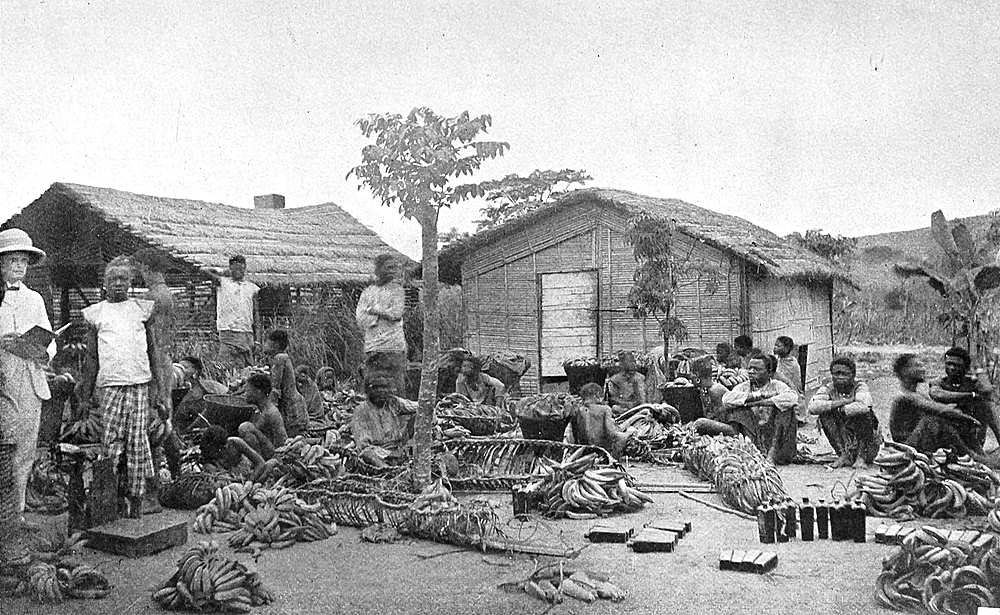
Of course, there were some abuses, which generally occurred on a small scale and were nearly always committed by natives. As Gilley notes:
Elsewhere, however, absent direct supervision, and with the difficulties of meeting quotas greater, some native soldiers engaged in abusive behavior to force the collection. Bricusse noted these areas as well, especially where locals had sabotaged rubber stations and then fled to the French Congo to the north. In rare cases, native soldiers kidnapped women or killed men to exact revenge. When they fell into skirmishes, they sometimes followed long-standing Arab and African traditions by cutting off the hands or feet of the fallen as trophies, or to show that the bullets they fired had been used in battle. How many locals died in these frays is unclear, but the confirmed cases might put the figure at about 10,000, a terrible number.
Elsewhere, however, absent direct supervision, and with the difficulties of meeting quotas greater, some native soldiers engaged in abusive behavior to force the collection. Bricusse noted these areas as well, especially where locals had sabotaged rubber stations and then fled to the French Congo to the north. In rare cases, native soldiers kidnapped women or killed men to exact revenge. When they fell into skirmishes, they sometimes followed long-standing Arab and African traditions by cutting off the hands or feet of the fallen as trophies, or to show that the bullets they fired had been used in battle. How many locals died in these frays is unclear, but the confirmed cases might put the figure at about 10,000, a terrible number.
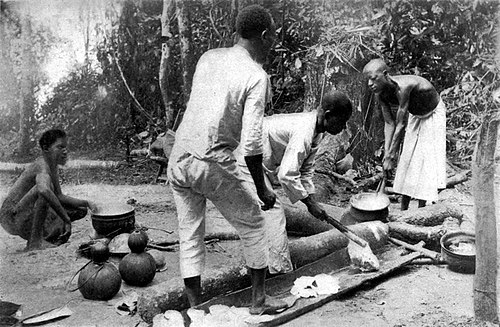
So, perhaps 10,000 people died, and there was some cruelty involved...as there always had been in the region and was increasingly being mitigated by the EIC
That stands in stark contrast to the claim from Hochschild and others that 10 million Congolese died. That is simply untrue: any serious study of population estimates finds it held about stable, and there were no millions of deaths.
As Gilley notes: The most sophisticated modeling by French and Belgian demographers variously suggests a population of 8 to 11 million in 1885 and 10 to 12 million by 1908. The Belgian Jean-Paul Sanderson, using a backward projection method by age cohorts, found a slight decline, from 10.5 million in 1885 to 10 million in 1910. This estimated change in total population governed by changing birth and death rates over a 25 year period represents a negligible annual net decline in population.
Further, Gilley notes that what slight population decline there was occured outside the EIC's control and ended as the EIC took over: "[In] the rubber-producing Bolobo area in the lower reaches of the Congo river, population decline was a result of the brutalities of freelance native chiefs and ended with the arrival of an EIC officer. More generally, the stability and enforced peace of the EIC caused birth rates to rise near EIC centers, such as at the Catholic mission under EIC protection at Baudouinville (today’s Kirungu). Population declines were in areas outside of effective EIC control."
The related lie is that corvée labor was horrible in the extreme. That to is untrue, as it was the only way to keep the EIC project alive and pay for it in a fair way. As Gilley notes:
The use of mandatory ("forced") labor in many colonies was intended as a replacement for taxation and was, of course, historically common in places where taxation was impractical. It may rub our modern sensitivities the wrong way, but this was the most fair and liberal means of providing for public services and infrastructure. Secondly, the "labour question" is whether under colonialism wages were generally rising and conditions of employment were generally improving. The work on wages in British Africa and India, and on employment law and unions shows the answer is "yes," most notably in the careful econometric work done on West Africa.
That stands in stark contrast to the claim from Hochschild and others that 10 million Congolese died. That is simply untrue: any serious study of population estimates finds it held about stable, and there were no millions of deaths.
As Gilley notes: The most sophisticated modeling by French and Belgian demographers variously suggests a population of 8 to 11 million in 1885 and 10 to 12 million by 1908. The Belgian Jean-Paul Sanderson, using a backward projection method by age cohorts, found a slight decline, from 10.5 million in 1885 to 10 million in 1910. This estimated change in total population governed by changing birth and death rates over a 25 year period represents a negligible annual net decline in population.
Further, Gilley notes that what slight population decline there was occured outside the EIC's control and ended as the EIC took over: "[In] the rubber-producing Bolobo area in the lower reaches of the Congo river, population decline was a result of the brutalities of freelance native chiefs and ended with the arrival of an EIC officer. More generally, the stability and enforced peace of the EIC caused birth rates to rise near EIC centers, such as at the Catholic mission under EIC protection at Baudouinville (today’s Kirungu). Population declines were in areas outside of effective EIC control."
The related lie is that corvée labor was horrible in the extreme. That to is untrue, as it was the only way to keep the EIC project alive and pay for it in a fair way. As Gilley notes:
The use of mandatory ("forced") labor in many colonies was intended as a replacement for taxation and was, of course, historically common in places where taxation was impractical. It may rub our modern sensitivities the wrong way, but this was the most fair and liberal means of providing for public services and infrastructure. Secondly, the "labour question" is whether under colonialism wages were generally rising and conditions of employment were generally improving. The work on wages in British Africa and India, and on employment law and unions shows the answer is "yes," most notably in the careful econometric work done on West Africa.
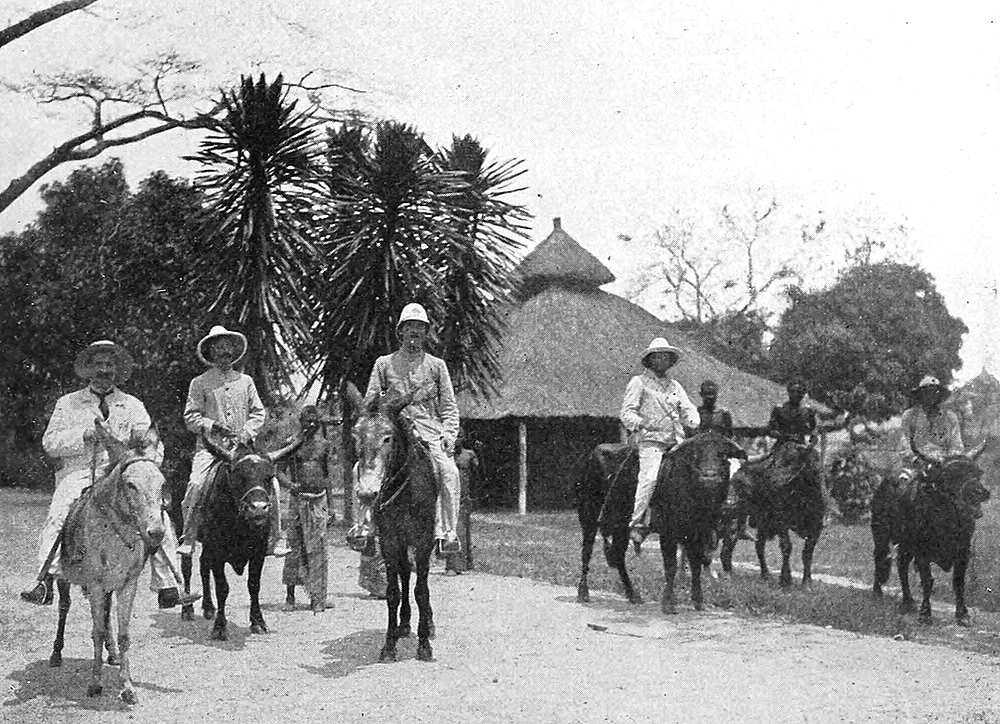
So, while there were some injustices, those were 1) far smaller in scale than lying critics claimed then and still claim today, 2) generally the work of troops/rulers outside the EIC's control, and 3) ended as the EIC was able to take over and establish just rule
Further, the rubber extraction generally was a good for the Congolese natives in that it was the only reasonable way to keep the EIC project alive, and "the preservation of the EIC meant the preservation of its life-saving interventions against disease, tribal war, slavery, and grinding poverty that had bedeviled the region since recorded time."
Further, the rubber extraction generally was a good for the Congolese natives in that it was the only reasonable way to keep the EIC project alive, and "the preservation of the EIC meant the preservation of its life-saving interventions against disease, tribal war, slavery, and grinding poverty that had bedeviled the region since recorded time."

This is true even of the alleged hand-chopping to punish recalcitrant/disobedient natives: that was the work of other natives, generally before the EIC imposed control, not by the EIC
For example, Gilley notes that Hochschild cites black American missionary George Washington Williams's depiction of chopped off extremities, which he saw during an 1890 visit, as evidence of EIC cruelty. The problem is that the scene came from an area not controlled by the EIC, and the practice ended when the EIC garnered control and kicked out the slavers.
For those curious, Williams said, “Human hands and feet and limbs, smoked and dried, are offered and exposed for sale in many of the native village markets. From the mouth of the Lomami-River to Stanley-Falls there are thirteen armed Arab camps; and in them I have seen many skulls of murdered slaves pendant from poles and over these camps floating their blood-red flag.”
It was the slavers and barbaric chiefs (along with their soldiers) who did the extremity chopping...as was the case in all the famous photos of chopped off hands from the region. The EIC didn't do that, though liars with an eye for destroying it portrayed it as having done so
For example, the below picture is one that has long haunted the EIC...the man's daughter's hands were chopped off when cannibals ate her, not because the EIC did anything to him or her. Instead, it stamped out the behavior that led to the chopping
For example, Gilley notes that Hochschild cites black American missionary George Washington Williams's depiction of chopped off extremities, which he saw during an 1890 visit, as evidence of EIC cruelty. The problem is that the scene came from an area not controlled by the EIC, and the practice ended when the EIC garnered control and kicked out the slavers.
For those curious, Williams said, “Human hands and feet and limbs, smoked and dried, are offered and exposed for sale in many of the native village markets. From the mouth of the Lomami-River to Stanley-Falls there are thirteen armed Arab camps; and in them I have seen many skulls of murdered slaves pendant from poles and over these camps floating their blood-red flag.”
It was the slavers and barbaric chiefs (along with their soldiers) who did the extremity chopping...as was the case in all the famous photos of chopped off hands from the region. The EIC didn't do that, though liars with an eye for destroying it portrayed it as having done so
For example, the below picture is one that has long haunted the EIC...the man's daughter's hands were chopped off when cannibals ate her, not because the EIC did anything to him or her. Instead, it stamped out the behavior that led to the chopping
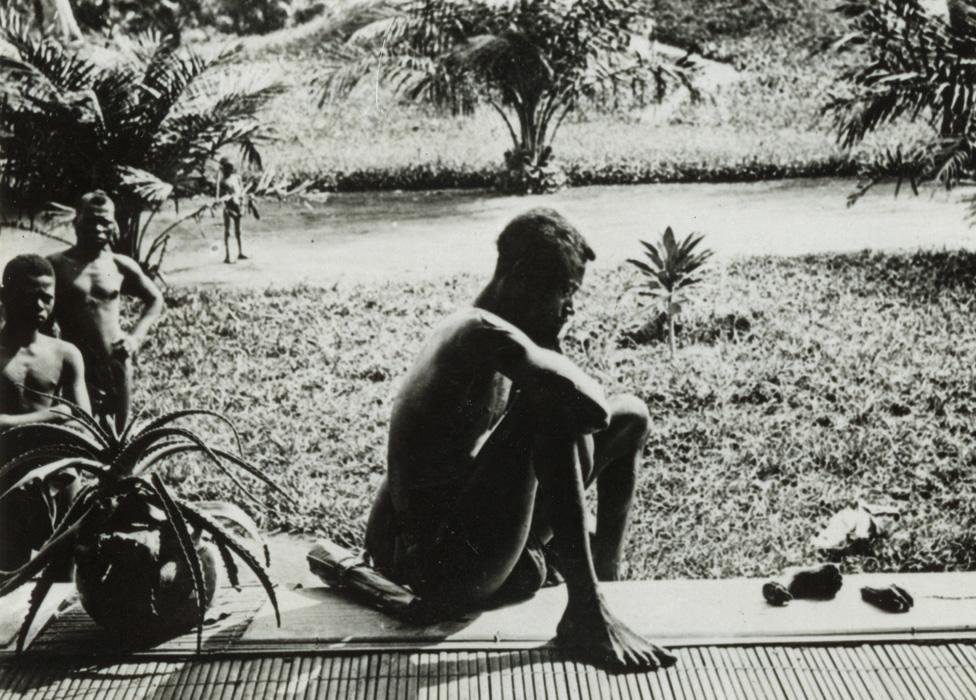
Then, the EIC ended in 1908 because the rubber crash of '06 made it impossible for the project to continue, and the Belgian Parliament wanted to strip the king of his possessions
He gave it up, though proud of his accomplishments and thinking he had acted in a humanitarian way (despite what modern propagandists say) and the area became a colony rather than the king's private domain
The Belgian Congo followed in the EIC's footsteps, and worked to continue building infrastructure in the territory (such as railroads, roads, schools, and hospitals) while ensuring there was justice and the atrocities for which the area had been known, namely slavery and cannibalism, were stamped out.
He gave it up, though proud of his accomplishments and thinking he had acted in a humanitarian way (despite what modern propagandists say) and the area became a colony rather than the king's private domain
The Belgian Congo followed in the EIC's footsteps, and worked to continue building infrastructure in the territory (such as railroads, roads, schools, and hospitals) while ensuring there was justice and the atrocities for which the area had been known, namely slavery and cannibalism, were stamped out.
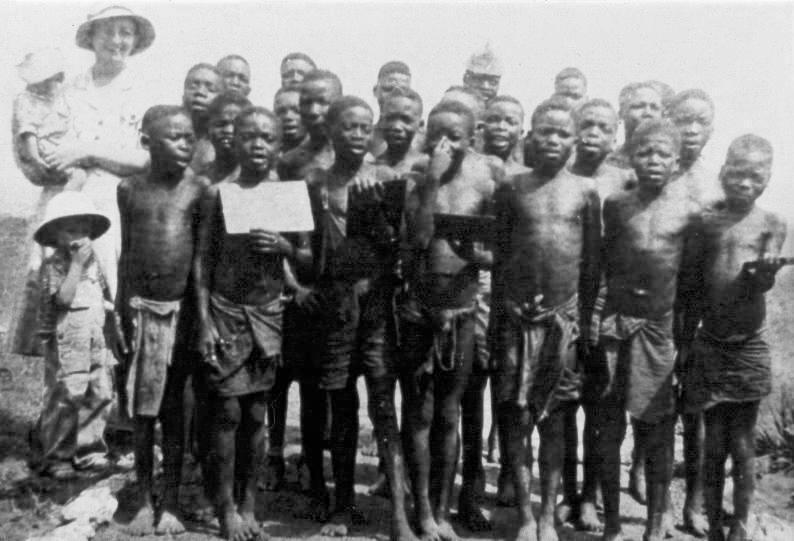
That hard work put in from 1908-60, half a century of intentional effort and dedicated investment, transformed the territory
What had been hell on Earth for European and native alike became a prosperous colonial gem, one of the jewels of Africa
Europeans even went there on vacation! It was civilized, increasingly developed, safe in a way it never was before or has been since, and and the decades of investment made it prosperous, particularly in the resource-rich Katanga region, but also across the country. Below, for example, is what Leopoldville used to look like
For once, there were no slavers kidnapping the Congolese in their thousands and chopping off the hands of those who resisted. For once, there were no cannibals preying on the weak in the worst ways. For once, a common man could get justice if he was wronged. For once, kids could get schooling and better themselves.
The Belgians accomplished that
What had been hell on Earth for European and native alike became a prosperous colonial gem, one of the jewels of Africa
Europeans even went there on vacation! It was civilized, increasingly developed, safe in a way it never was before or has been since, and and the decades of investment made it prosperous, particularly in the resource-rich Katanga region, but also across the country. Below, for example, is what Leopoldville used to look like
For once, there were no slavers kidnapping the Congolese in their thousands and chopping off the hands of those who resisted. For once, there were no cannibals preying on the weak in the worst ways. For once, a common man could get justice if he was wronged. For once, kids could get schooling and better themselves.
The Belgians accomplished that
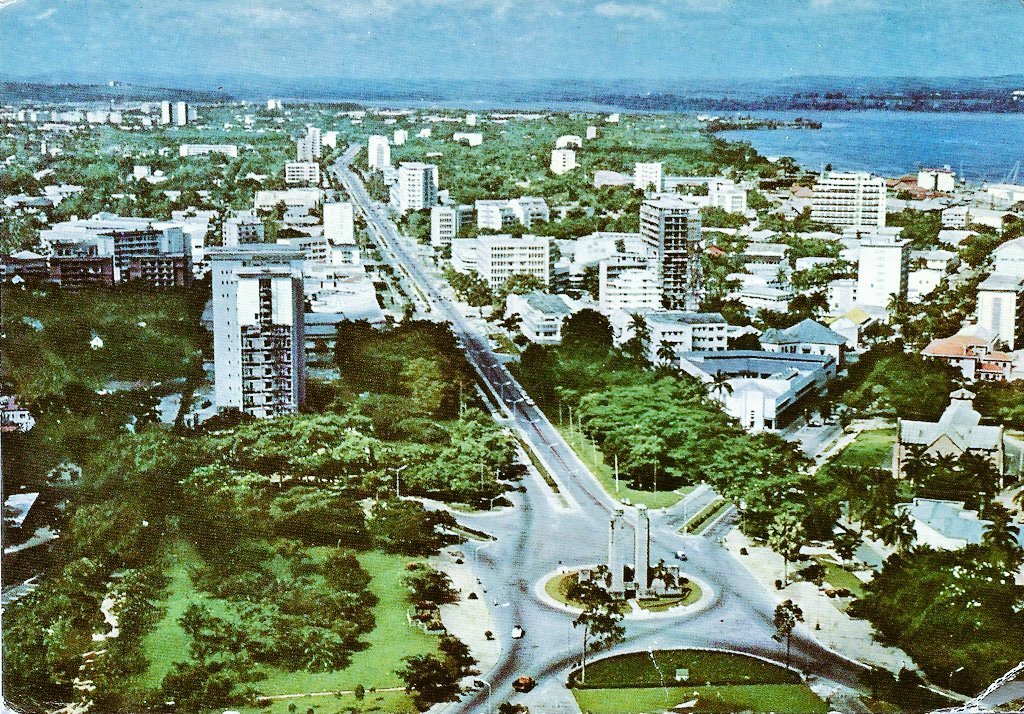
Then decolonization destroyed all that progress. The UN crushed pro-Belgian Katangese secession, the Simbas destroyed much of the country and treated the remaining Belgians in the worst ways, and the country ended up in the hands of the worst, most tyrannical kleptocrats
Now, Empire of Dust is a representative picture of the destroyed country and Kinshasa (formerly Leopoldville) looks like this:
Now, Empire of Dust is a representative picture of the destroyed country and Kinshasa (formerly Leopoldville) looks like this:
Hence why, as Gilley records, even today the Congolese will ask Westerners, in a "widely heard lament," "When are the Belgians coming back?"
The years of Belgian rule, whether under the EIC or the Belgian Congo, were the only years of just rule the hellish region has ever known, and now it's reverting back to its. pre-Belgian roots
The years of Belgian rule, whether under the EIC or the Belgian Congo, were the only years of just rule the hellish region has ever known, and now it's reverting back to its. pre-Belgian roots

If this interested you, check out my review of Gilley’s book here: theamericantribune.news/p/the-case-for…
• • •
Missing some Tweet in this thread? You can try to
force a refresh



